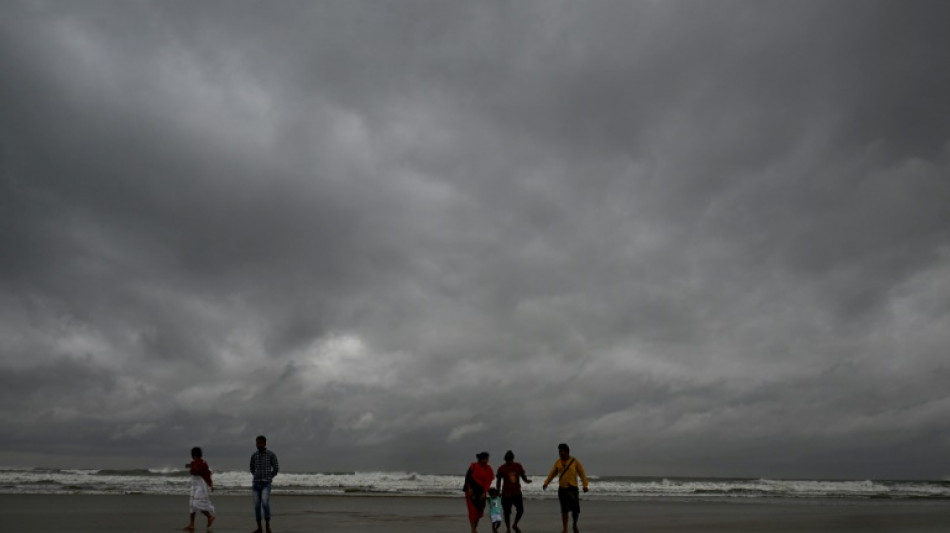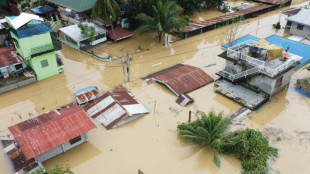

More than a million Indians flee as cyclone approaches
At least 1.1 million people on India's eastern coast are fleeing to storm shelters inland, hours before a powerful cyclone is expected to hammer the low-lying region, ministers said Thursday.
Cyclone Dana is likely to hit the coasts of West Bengal and Odisha states -- home to around 150 million people -- as a "severe cyclonic storm" late on Thursday, India's weather bureau said.
It predicts winds will be gusting up to 120 kilometres an hour (74 miles per hour).
Major airports will shut overnight, including key travel hub Kolkata, where heavy rain was already lashing the sprawling megacity.
The eye of the storm is predicted to make landfall early Friday, near the coal-exporting port of Dhamra, about 230 kilometres (140 miles) southwest of the megacity Kolkata.
It is also expected to impact neighbouring low-lying Bangladesh, where the leader of the interim government Muhammad Yunus said that "extensive preparations" are being made.
Crashing waves are expected to inundate swathes of coastal areas, with water predicted to surge up to two metres (6.5 feet) above usual tide levels.
Odisha state health minister Mukesh Mahaling told AFP that "nearly a million people from the coastal areas are being evacuated to cyclone centres".
In neighbouring West Bengal state, government minister Bankim Chandra Hazra said: "More than 100,000 people have so far been shifted to safer places."
- 'Save lives' -
Businesses in Puri, a popular beach resort, have been ordered to close, and tourists told to leave.
"All efforts are being made to face the cyclone and save lives," said Puri district magistrate Siddharth Swain.
Kolkata airport director Pravat Ranjan Beuria said flights will be suspended overnight Thursday due to "predicted heavy winds and heavy to very heavy rainfall".
The airport in the city of Bhubaneshwar will do the same, while scores of trains have been cancelled and ferries from Kolkata ordered to stay in port.
Bangladesh disaster minister Faruk-e-Azam told AFP that authorities were on "high alert" but evacuation orders had not been issued as it was predicted the worst of the storm would hit India.
"We are closely monitoring the cyclone's progress," he said.
Cyclones -- the equivalent of hurricanes in the North Atlantic or typhoons in the northwestern Pacific -- are a regular and deadly menace in the northern Indian Ocean.
Scientists have warned that storms are becoming more powerful as the world heats up due to climate change driven by burning fossil fuels.
Warmer ocean surfaces release more water vapour, which provides additional energy for storms, strengthening winds.
A warming atmosphere also allows them to hold more water, boosting heavy rainfall.
However, better forecasting and more effective evacuation planning have dramatically reduced death tolls.
In May, Cyclone Remal killed at least 48 people in India, and at least 17 people in Bangladesh, according to government figures.
F.P.Kavanaugh--IP




